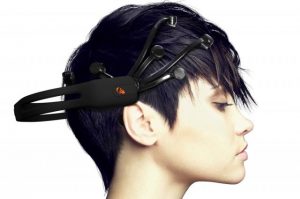Brain stimulation will make us lose weight
 A rather curious news, which however promises great results despite the idea is not exactly comforting, on the contrary: a group of researchers has developed a non-invasive brain stimulation as a technique to lose weight , experimenting it on a group of obese patients who following the treatment they would start to eat less and burn more, eventually losing weight.
A rather curious news, which however promises great results despite the idea is not exactly comforting, on the contrary: a group of researchers has developed a non-invasive brain stimulation as a technique to lose weight , experimenting it on a group of obese patients who following the treatment they would start to eat less and burn more, eventually losing weight.
I know you think, or at least I thought it: it looks like electric shock. In reality it is an absolutely painless technique, and, in the specific case of the study, it acts on an area that, according to the experts, would regulate the sense of hunger. And it would have allowed a group of obesity patients to lose weight without side effects, although more in-depth studies are needed to understand if the technique can be adopted in the long term, i.e. with repeated treatments that allow those who have to lose weight, even of many kilos, to get rid of them easily thanks to a few sessions of brain stimulation.
BRAIN STIMULATION TO LOSE WEIGHT?
The stimulation used on these patients would be called direct current or direct current transcranial stimulation (tDCS), and it is a non-invasive brain stimulation, which is obtained by applying electrodes to the skull to act on cortical excitability, stimulating changes.
This technique, already used to treat, together with other stimulations, patients with speech disorders and patients with neurological and psychiatric disorders, is a painless treatment, which according to a small study can also be used to act on the sense of hunger in patients suffering from obesity. Nine patients, treated with this stimulation twice a week , and asked to eat as much as they wanted, experienced a natural decrease in appetite, a reduced need for fatty and sugary foods, and consequent weight loss. In short, the stimulation acted as a natural hunger blocker.





























+ There are no comments
Add yours